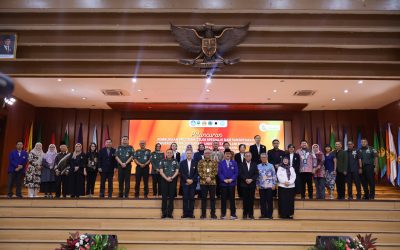In a quiet operating theater at Hasan Sadikin General Hospital, a team of Universitas Padjadjaran surgeons prepared for one of the most delicate missions in medicine: repairing meningomyelocele, a severe birth defect where a newborn’s spinal cord protrudes through the back. The tiny patient, only hours old, lay under warm lights, her life just beginning yet already facing a major hurdle.
Led by Dr. Filla Reviyani Suryaningrat from the Faculty of Medicine, the team documented a series of such cases, aiming to improve surgical timing and post-operative outcomes for these fragile infants. Each moment in the process was critical — from anesthesia that wouldn’t overwhelm a newborn’s system, to meticulous closure of the exposed spinal cord, to infection prevention strategies that could determine survival.
Their findings showed that rapid surgical intervention, ideally within the first 24–48 hours of birth, significantly reduces infection risks and improves neurological outcomes. The team also identified crucial anesthetic protocols tailored for neonates, helping stabilize breathing and heart function during the procedure.
For parents, these results translate into clearer guidance: seek immediate referral to specialized centers upon diagnosis. For healthcare systems, it underscores the need for trained pediatric surgical teams and neonatal ICU support — resources that could save countless lives.
By refining neonatal perioperative care, this research advances SDG 3: Good Health and Well-being, positioning Unpad as a leader in pediatric surgical innovation. “Every child deserves a healthy start, no matter how complex their first day of life,” Dr. Filla said.





0 Comments